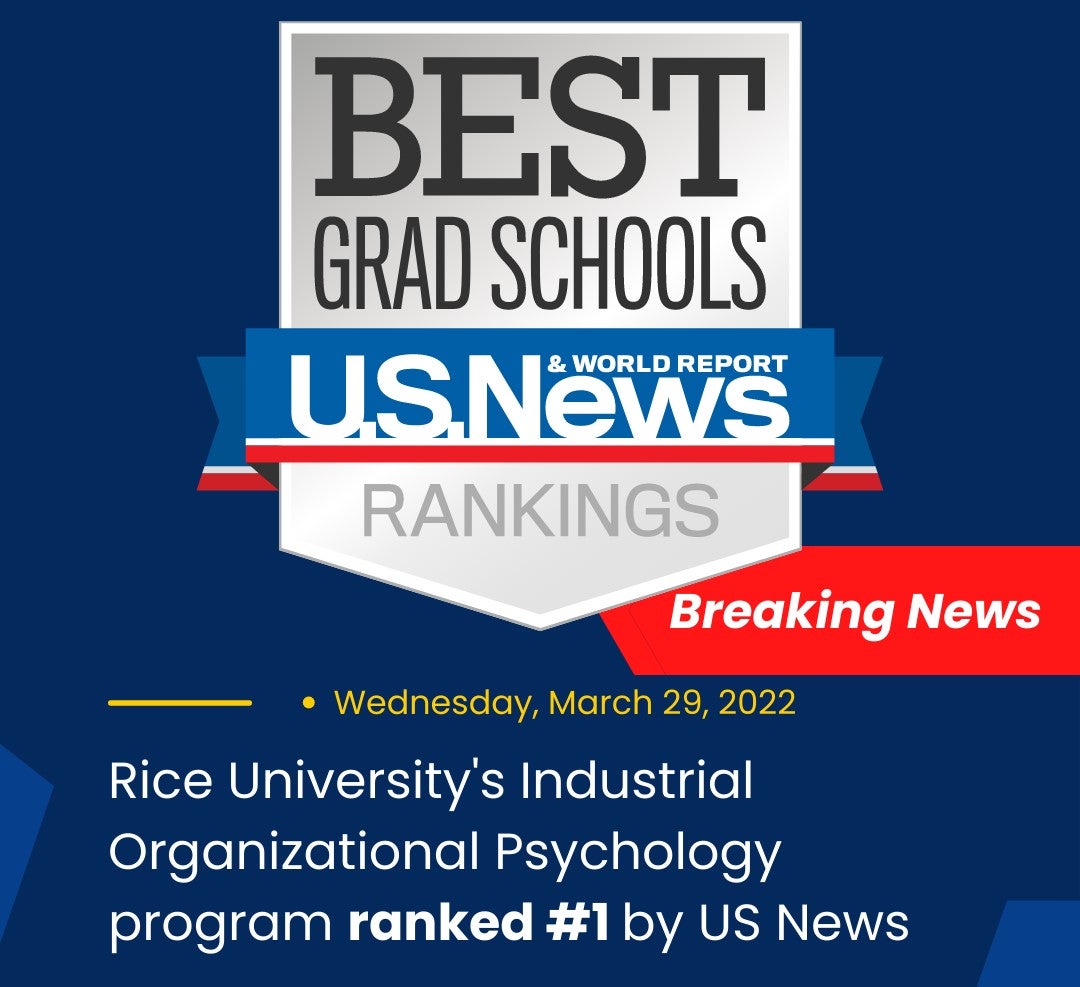I-O Psychology at Rice University from Rice University on Vimeo.
Industrial-Organizational Psychology is a branch of psychology that applies psychological theories and principles to organizations. Often referred to as I-O psychology, this field’s focus is the scientific consideration of a wide range of psychological factors critical to the workplace: e.g., the nature and necessity of technical, interpersonal, and self-management skills; how people work within diverse and dynamic work environments; improving training in an aging workforce with greater technological demands; managing a diverse range of people and projects successfully and safely; and dealing with disruptive changes that inevitably face jobs and organizational cultures, ranging from mergers and acquisitions, to AI and automation.
Industrial and organizational psychologists strive to make workplaces more efficient, pleasant, and productive through research and application. Rice University's Industrial-Organizational Psychology graduate program is currently ranked #1 in the country by U.S. News & World Report. Additionally, out of our six I-O faculty, three of them have served as President of our national society, the Society for Industrial and Organizational Psychology (SIOP), www.siop.org. In addition to our outstanding graduate program and university, the city of Houston offers key advantages to our graduate students as a city with a highly diverse population, along with a wide array of industries that have a very high demand for I-O expertise, such as healthcare, energy, and aerospace.
The Master in Industrial-Organizational Psychology (MIOP) graduate program increases the depth of students’ knowledge of critical concepts and methods in I-O psychology, as well as how to apply that knowledge to real-world organizational problems. MIOP provides students with very strong and valuable training for work in a variety of consulting firms and industry. This focus complements the strengths of our Ph.D. program in I-O psychology, which has its strengths in research. Overall, this means that MIOP students greatly benefit from a variety of cutting-edge organizational research and science that informs their practice.
In pursuit of their degree, all MIOP students will achieve the following outcomes:
- Establish a solid foundation of knowledge pertaining to psychological theories and principles essential to I-O psychology, including individual differences, psychometrics, organizational theories, and social and personality theories.
- Conceptualize, propose, and design research studies and projects that apply principles and knowledge that serve to heighten our understanding and prediction of human behavior in organizations.
- Develop strong quantitative skills when analyzing psychological data, in order to support scientific and practical inferences that help solve real-world organizational problems.
- Demonstrate a high level of skill when communicating and interacting with lay individuals in organizational settings about scientific knowledge and products of I-O psychology.
- Appreciate the role and critical tasks of an I-O psychologist as an internal or external consultant to organizations and organizational leadership.
The program is a non-thesis full-time degree program (e.g., enrolled students cannot work full time simultaneously; no night classes are offered). Students will complete 44 hours across 12 courses.

